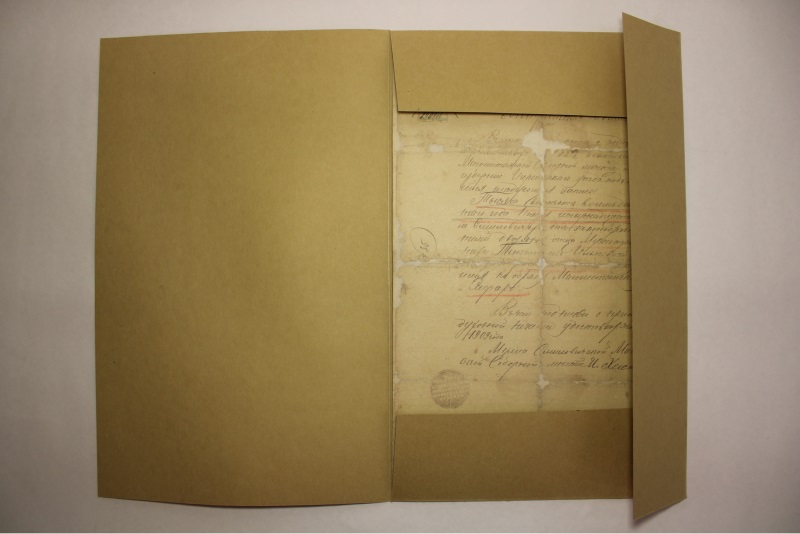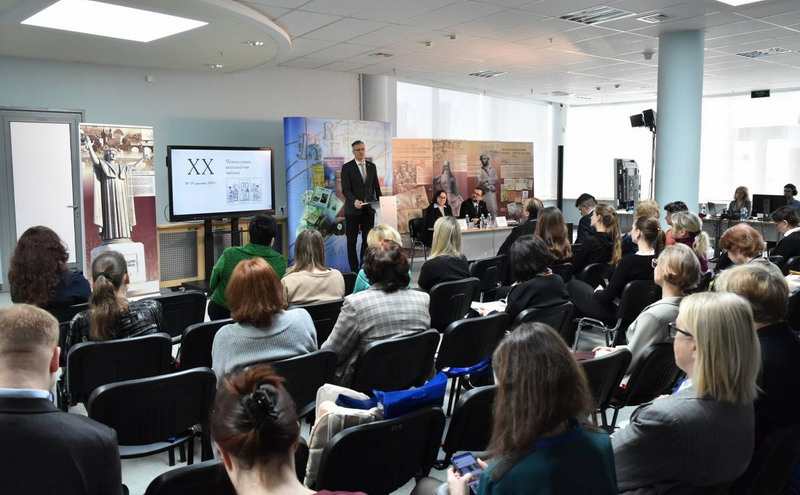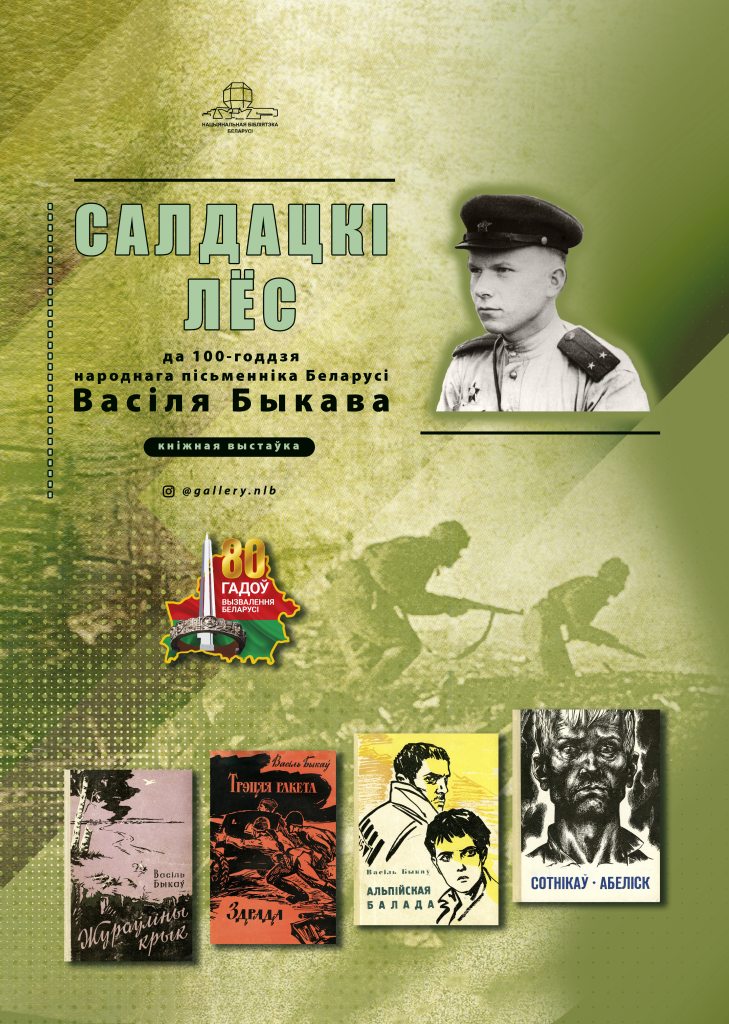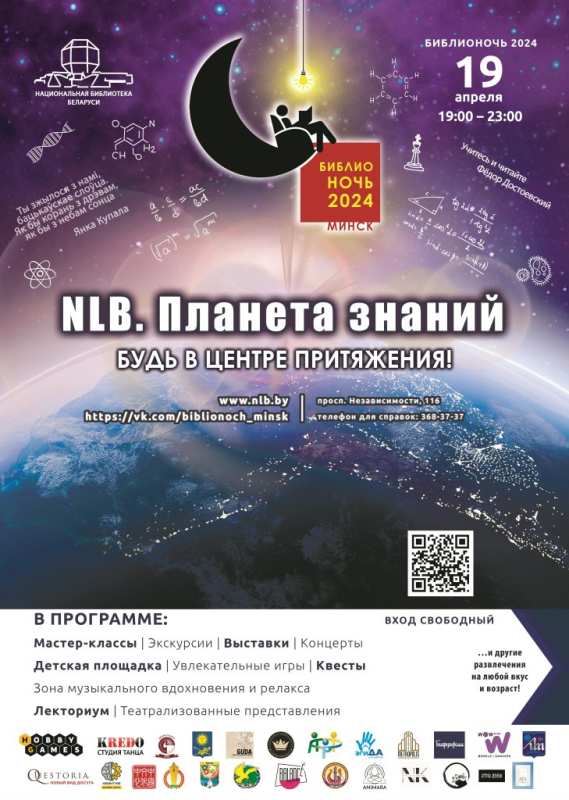Whether books can be advised to anyone and why libraries will always be visited: a talk with the director of the National Library of Belarus, Roman Stepanovich Motulsky.
– Roman Stepanovich, the National Library of Belarus is a multifunctional complex, but the very name of it implies, first of all, the books. What literature do you prefer?
– I loved to read since childhood and, by and large, my preferences have not changed much with age: I have always been fond of history, fiction. Of course, time makes adjustments, but apart from professional reading and scientific literature, this is non-fiction about history, especially the history of Belarus, philosophy, futurology and social science fiction.
– There is a generalized portrait of the reader of our library: a young man who came to Minsk for higher education. What kind of literature would you recommend to them?
– Even more likely a young lady... (smiles).
Here we should divide professional reading and reading for free time, for personal development. If we talk about students, this is first and foremost professional reading. We provide all the opportunities for learning, having access to the resources of the largest and most famous universities in the world, and this must be actively used. After all, students have time to study; they can often sacrifice some sleep and leisure for more learning. Then there will be no time for this information.
As for fiction, I never undertake to give some general recommendations. I will explain why. There is such a famous phrase: "The library is a pharmacy for the soul." It is impossible to imagine a pharmacist who gives same medicine to everyone. The same can be said of a librarian. Yes, there is a fashion for reading, a fashion for books, like any fashion, indeed. But you must admit, even in fashion there are separate groups and trends. This is a figurative example, but I believe that a book of fiction is a very individual phenomenon. Here, some suggestions and recommendations can be made only to those people you know. When you are a regular reader in the public library, when the librarian knows you and you can have a heart-to-heart talk, only then one can say: “This will suit you, this will be interesting.” After all, the same book may be super-interesting to one and completely boring to another. A book can be fun, but a book can be harmful. It is important to remember that a person reads really for the soul, and the same person may have a different mood at different times. Sometimes you want to be alone with a serious book, and sometimes you want to have fun and laugh. Therefore, the book is a very personal thing.
– And how do you feel about the reading lists, for example, “100 books that a person under 50 should read,” or “Top 5 editions for spring reading”?
– Absolutely normally. After all, these are general recommendations, like revitalizing vitamins, if we return to the allegory with the pharmacy. Or another example. We all went to school. There is a school curriculum. It provides the most common list of books a person needs to learn the universal human values. You can study the world through physics and mathematics, and you can study it through fiction. A person graduates from school and goes further, and the list of references extends. That is, it is such a minimum minimorum (Latin – the least), because it is all: librarians, literary critics and teachers.
Now, there is a fashion for everything: writing recipes, designing rooms... Why not make your own list of books? This is what is called, in our professional language, a “recommendatory bibliography”, and it is up to each person to choose from this list. The library has always had such lists of literature. Want to read? Here you are, the library recommends. This is, by and large, the essence of our profession. But these books are still designed for certain readers; these are not general recommendations for all people of the planet and for all times.
– The library team is very large and diverse: librarians, technical staff, scientists, and also representatives of the so-called creative professions such as journalists, designers, directors. What helps to competently lead these people?
– Our team is really complex, but after all, our library is not simple. This is one of the world’s most original institutions, and we are in many ways pioneers. It seems to me that the complexity and ease of managing the National Library of Belarus is based on the fact that we have different people who studied in different universities and have different life experiences. It is much more difficult, in my opinion, to manage a homogenous team. At first it seems that everything is very simple: the employees have the same tasks and they clearly follow the professional path. In fact, it is very difficult to achieve any non-standard approaches or innovations in such a team, because everyone knows what is right, what always should be. And just due to the fact that there are representatives of very different views in the library, there is no shortage of innovations. Here, perhaps, is another difficulty: how to direct this energy to creation.
– What do you enjoy most about the work in the library?
– The main result of my work, I think, is that guests come to us and say: “I haven’t been here for a long time (or vice versa). How many years has the library been working? And everything looks like new.” Since 2006, the library has been meeting the reader every day as if it has just opened its doors. And this is both the level of the material base and the state of the staff, services and resources of the library.
And, of course, I am glad that many young people come here.
– The National Library of Belarus is doing a great job of digitizing books from its collections and storing the digitized copies from other institutions. Why is this work so important and is it directly related to the great popularity of e-books?
– I would very modestly evaluate our digitization results. Yes, we are working in this area, but the number of digitized national documents is not so large. In any case, I would like it to be much more.
This is neither a fad nor an end in itself. This is an implementation of the library’s essential function, which existed not one hundred, not two hundred, but thousands of years, from the time when the first library was created. You need to find a way to collect and store as much information as possible and make it as accessible as possible to all who need it. If you delve into the theory of librarianship, then these functions are opposite, contradictory and are in perpetual conflict. The more information we collect, the more difficult it is to find something specific. The electronic systems have more advanced search capabilities than a traditional book, no matter how perfect it is. We understand that it is hardly possible to find many people who like to read bibliographic indexes in order to find the right book. Indexes, catalogs, bibliographic materials were invented by us, professionals, to solve professional problems, to facilitate the search, since it is impossible to bypass all the bookcases that store nine million books. We need a certain toolkit. Traditionally, the search is very costly and time consuming. In electronic format, this work is performed by the software and other facilities, making it much faster and more convenient. That is, we can very quickly provide the user with the necessary information with high search accuracy. Accordingly, it is necessary to strive for this, and at the present stage of the development of civilization, this is the future of information systems, one of which is the library.
Another aim of digitization is to protect a document from banal physical deterioration. History has left us an amazing confirmation of this cold theory: in London we found the first Belarusian Primer. It was found nowhere else but in the Middle Temple library. Why is it preserved? This is not a public library and it generally restricts borrowing. The Primer in the Old Slavonic language, published in Belarus, was not in demand in London at all. That's why it survived and reached our time. In Belarus, not a single copy has survived, as primers were used and worn out. If it weren’t for the London library, we would not know about this book, and it would be lost for us forever. It can be assumed that many books went into oblivion because they were simply worn out. There are still natural disasters, wars and fires that destroy books. So publications in digital format will remain for future generations.
Bazhena Ganushkina,
the Public Relations Department










